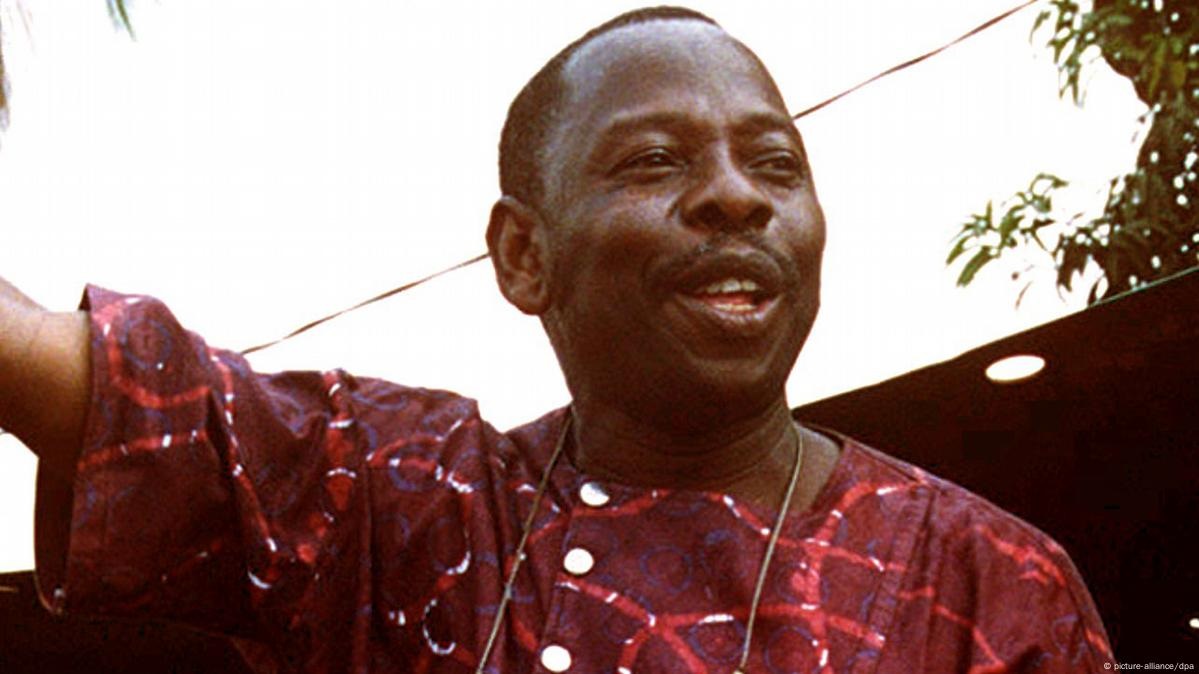Nigeria’s President Bola Tinubu on Friday, June 13, 2025, granted a posthumous pardon to renowned environmental activist Ken Saro-Wiwa, three decades after his execution, which drew international condemnation, the BBC reports.
Saro-Wiwa, along with eight other activists known as the Ogoni Nine, was convicted of murder and executed by hanging in 1995 under the country’s military dictatorship.
Their deaths were widely viewed as retribution for their peaceful protests against the environmental practices of oil giants, particularly Shell, in Nigeria’s Ogoniland region.
Shell has consistently denied any involvement in the executions.
While the recent pardons have been welcomed in some quarters, critics argue they fall short of addressing the broader injustice.
Activists and family members say the government should go further in clearing the men’s names.
In addition to granting the pardons on Thursday, President Tinubu awarded national honours to the Ogoni Nine, recognizing them for their role in Nigeria’s democratic journey.
The honorees included Ken Saro-Wiwa, Barinem Kiobel, John Kpuinen, Baribor Bera, Felix Nuate, Paul Levula, Saturday Dobee, Nordu Eawo, and Daniel Gbokoo.
They were acknowledged during the country’s annual Democracy Day celebration.
Tinubu described the men as national “heroes” who had made significant contributions to the country’s democracy and paid tribute to their legacy.
The Movement for the Survival of the Ogoni People (Mosop), which was founded by Saro-Wiwa, praised the pardon as a “bold step.”
However, the group also emphasized that the pardon implies a form of guilt, arguing that no crime was ever committed.
They maintain that the men were wrongly convicted and demand full exoneration.
Barinem Kiobel’s widow also expressed mixed feelings. While she appreciated the national honour, she urged President Tinubu to officially declare her husband and the others innocent.
“A pardon is not given to those who are innocent,” she told the BBC, reiterating her call for a retrial to clear their names entirely.
Amnesty International echoed those concerns, saying that while the clemency is a symbolic gesture, it does not deliver full justice for the Ogoni Nine.
The organization emphasized that meaningful action must include accountability for oil companies responsible for ongoing environmental degradation in the Niger Delta.
Ken Saro-Wiwa, a prominent writer and environmental activist, led the Ogoni people in peaceful resistance against Shell and other multinational oil firms.
Mosop accused these companies of severely polluting the region, destroying farmland and rivers essential to the local population’s survival.
In response to the growing protests, the Nigerian military government cracked down on the activists.
The Ogoni Nine were accused of killing four Ogoni chiefs and were tried in secret by a special military tribunal.
The verdicts and subsequent executions were widely condemned as unjust and extrajudicial.
Their deaths became a global symbol of environmental activism and state repression.
Following the executions, Nigeria faced international backlash, including a suspension from the Commonwealth.
Since then, Shell has been the subject of numerous legal challenges related to oil spills and environmental damage in Ogoniland and the wider Niger Delta region.
In 2021, a Dutch court ordered the company to compensate farmers for pollution that destroyed large areas of farmland and contaminated water sources.
Shell later agreed to pay over $100 million in compensation.
More recently, in 2024, legal representatives for two communities in Ogoniland appeared before London’s High Court, arguing that Shell should be held accountable for decades of environmental harm dating back to 1989.
The company continues to deny liability, maintaining that most oil spills are due to sabotage, theft, and illegal refining, rather than its own operations.
Despite the pardons and national recognition, many believe justice remains incomplete.
Activists insist that full accountability and restoration of the Ogoni Nine’s reputations are still necessary steps in the fight for environmental justice and human rights in Nigeria.



